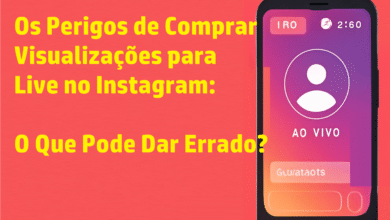Building the Future: How AI and Web3 Will Change the Internet
The Internet as we know it is on the brink of a massive transformation, driven by the powerful convergence of Artificial Intelligence (AI) and Web3 technologies. These advancements are set to revolutionize everything, from the way we interact with technology to how we communicate, share information, and manage digital assets. As we continue to move forward, the potential of these technologies is limitless, and the future of the Internet will be marked by greater efficiency, security, and decentralization.
At the heart of this transformation lies the fusion of two groundbreaking innovations: AI and Web3. Artificial Intelligence, once thought to be a futuristic concept, is already making waves in various industries, including healthcare, finance, and even entertainment. AI algorithms can analyze vast amounts of data, identify patterns, and make predictions with incredible accuracy, driving efficiencies and innovation. On the other hand, Web3 is all about decentralization. It aims to give individuals more control over their digital lives by utilizing blockchain technology to create a more open, secure, and user-centric Internet.
Together, AI and Web3 are laying the groundwork for a new kind of online ecosystem, one that is more intelligent, transparent, and democratic. By empowering users with advanced tools for managing their data and assets, while simultaneously leveraging AI to improve decision-making and streamline processes, the future of the Internet looks brighter than ever.
One of the most exciting developments in this space is the rise of AI Web3 Apps. These applications combine the best of both worlds, harnessing the power of AI to enhance the functionality of decentralized platforms and services. AI can be used to create smarter, more personalized experiences for users, from better recommendations to more efficient transactions. Web3, with its decentralized nature, ensures that these experiences are secure, private, and controlled by the user rather than a central authority. The marriage of these two technologies creates a powerful synergy that will shape the future of online interactions, providing users with more autonomy, efficiency, and control over their digital presence.
In a Web3-powered world, users will no longer be dependent on traditional centralized platforms that control access to their data, services, and applications. Instead, they will be able to access decentralized applications (dApps) that are powered by blockchain and AI, offering greater freedom and privacy. These decentralized apps will allow users to perform tasks such as managing digital identities, transferring assets, and even participating in governance without the need for intermediaries. This will be a game-changer for industries such as finance, healthcare, and even social media, where users will have the opportunity to directly interact with services on their terms.
AI will also play a crucial role in the development of decentralized autonomous organizations (DAOs), which are organizations run entirely by code and AI algorithms rather than traditional hierarchical structures. DAOs are expected to revolutionize the way businesses and organizations operate, allowing for more democratic decision-making processes, transparency, and accountability. The use of AI in DAOs will allow for more accurate decision-making, as AI can analyze data in real time and provide insights that help guide collective action.
Another important aspect of the AI and Web3 convergence is the creation of trustless systems. Blockchain, the underlying technology of Web3, provides a secure, transparent, and immutable ledger that can be used to record transactions and data without the need for intermediaries. This removes the need for trust in a central authority and allows users to interact directly with one another. By integrating AI into these trustless systems, users will benefit from smarter, more efficient processes that can make decisions faster and with greater accuracy.
The future of the Internet will also be characterized by the rise of digital economies built on blockchain and AI technologies. As digital currencies, smart contracts, and decentralized finance (DeFi) platforms become more prevalent, individuals will be able to participate in a new kind of global economy that is not limited by geographic borders or traditional financial systems. AI-powered tools will help optimize these digital economies by providing more accurate pricing, predicting market trends, and automating trading strategies. This will allow users to participate in a more dynamic and efficient financial system that is more accessible and inclusive than ever before.
One of the key benefits of AI and Web3 integration is the enhanced security it will bring to the Internet. With traditional centralized systems, user data is often stored in a single location, making it vulnerable to hacking, breaches, and misuse. Web3, on the other hand, leverages blockchain to distribute data across a network of nodes, making it far more difficult for bad actors to gain unauthorized access. AI can further enhance security by identifying and mitigating threats in real-time, improving the resilience of Web3 networks. As a result, users can trust that their personal information and digital assets are safe and secure in this new decentralized Internet.
The rise of AI and Web3 also paves the way for the creation of new forms of digital assets, such as non-fungible tokens (NFTs) and decentralized finance tokens. These assets are stored on the blockchain and are powered by AI algorithms that ensure their scarcity and value. By enabling the creation and exchange of unique digital assets, these technologies will give rise to entirely new markets and opportunities for creators, investors, and users alike.
As AI and Web3 technologies continue to evolve, they will empower individuals to become more self-sufficient in managing their digital lives. Instead of relying on large corporations or centralized entities to provide services, users will be able to access a wide range of decentralized services powered by AI. Whether it’s managing personal data, creating digital assets, or engaging in online transactions, users will have more control and autonomy over their online presence. The result will be a more personalized, efficient, and secure Internet that puts the power back into the hands of the user.
In conclusion, the future of the Internet will be defined by the convergence of AI and Web3 technologies. These innovations are transforming the way we interact with the digital world, creating a more decentralized, secure, and efficient online ecosystem. As AI continues to drive smarter decision-making and Web3 enables greater autonomy and privacy, users will be empowered to take control of their digital lives like never before. With these technologies paving the way for new opportunities, the future of the Internet looks incredibly promising.
To explore more about the evolving digital economy and decentralized applications, you can visit https://www.mexc.com/exchange/TUA_USDT?_from=search_spot_trade

